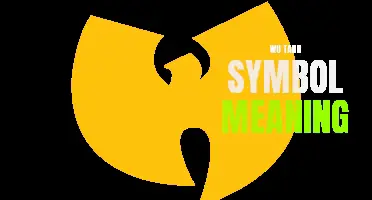
Symbols have been used throughout history as a way to communicate important concepts and ideals in a visual and universal language. One such concept that is often represented by symbols is loyalty. Loyalty is a powerful and cherished quality, and many cultures and societies have developed their own symbols to convey this virtue. From the intricate knot designs of the Celtic tradition to the mythical swan of ancient Greece, these symbols not only serve as a visual representation of loyalty, but also evoke a sense of admiration and respect for those who possess it. In this article, we will explore some of the most intriguing symbols of loyalty and delve into the rich meanings and stories behind them. Whether you are looking to pay tribute to a loyal companion or simply seeking inspiration to embody loyalty in your own life, these symbols are sure to captivate and inspire. So, join us on this journey to discover symbols that reflect loyalty and the profound impact they have had on human culture and understanding.
What You'll Learn
- What are some common symbols that represent loyalty in different cultures?
- Are there any symbols that specifically represent loyalty in the context of friendship or relationships?
- How have symbols of loyalty evolved over time?
- Are there any symbols that represent loyalty in religious or spiritual contexts?
- What is the significance of using symbols to represent loyalty in society?

What are some common symbols that represent loyalty in different cultures?
Loyalty is regarded as a fundamental value in various cultures around the world. It is seen as a virtue that exemplifies fidelity, trustworthiness, and devotion. Symbols are often used to represent loyalty and serve as reminders of this important quality. Below are some common symbols that represent loyalty in different cultures.
- Claddagh Ring (Ireland): The Claddagh ring is a traditional Irish symbol of loyalty, friendship, and love. It features two hands holding a heart that is adorned with a crown. The heart symbolizes love, the hands represent friendship, and the crown signifies loyalty. This popular ring is often given as a token of commitment or as a wedding ring.
- Evergreen Trees (China): In Chinese culture, evergreen trees, particularly the pine tree, are considered symbols of loyalty and steadfastness. The evergreen tree does not shed its leaves during the winter, hence representing loyalty that remains unchanged even in the face of adversity. In traditional Chinese artwork, the pine tree is often depicted along with the symbol of a crane, which also signifies loyalty.
- Loyalty Knot (Celtic): The loyalty knot, also known as the Trinity knot or Triquetra, is a Celtic symbol that represents loyalty, as well as unity and eternity. The three interconnected loops of the knot symbolize the interdependence and connectedness of the past, present, and future. It is often used in Celtic jewelry, such as pendants and bracelets, to signify loyalty and commitment.
- Loyalty Fish (Japan): In Japanese culture, the loyalty fish, also known as koi fish, is a symbol of loyalty, perseverance, and determination. Koi fish are known for their ability to swim against the current and overcome obstacles. They are often depicted in artwork and tattoos as a reminder to remain loyal and steadfast, no matter the challenges.
- Loyalty Knot (Nordic): The Viking Norse Knot, also referred to as the loyalty knot, is a symbol of loyalty, as well as interconnectedness and eternal bonds. The intricate and interwoven design represents the unbreakable bonds formed through loyalty and friendship. This knot is often found in Nordic jewelry, such as pendants and rings, as a symbol of commitment and loyalty.
- Royal Crown (United Kingdom): The royal crown is a symbol of loyalty and allegiance to the monarchy in the United Kingdom. It represents loyalty to the sovereign and the support of the British monarchy. The crown is a prominent symbol in British culture, and it is often associated with loyalty, duty, and honor.
These symbols are widely recognized in their respective cultures as representations of loyalty. They serve as reminders to individuals to uphold this important value and to remain loyal, steadfast, and true in their relationships and commitments.
Exploring the Powerful Symbols and Profound Meanings of Faith
You may want to see also

Are there any symbols that specifically represent loyalty in the context of friendship or relationships?
Loyalty is an essential trait in any friendship or relationship. It is the foundation of trust, reliability, and commitment. While there are no specific symbols that universally represent loyalty in the context of friendship or relationships, several symbols can convey loyalty when used in the right context. These symbols can serve as visual reminders and gestures of loyalty to strengthen the bond between friends or partners.
One commonly used symbol of loyalty is the infinity symbol (∞). The infinity symbol represents eternity, continuity, and infinite love or friendship. When used to represent loyalty in a friendship or relationship, it signifies a commitment that is unwavering and everlasting. The symbol can be incorporated into jewelry, tattoos, or other forms of personal expression to remind individuals of their loyalty to one another.
Another symbol associated with loyalty is the heart symbol (♥). While the heart symbol is commonly associated with love, it can also represent loyalty in relationships. The heart symbolizes deep affection, compassion, and dedication. When used in the context of friendship or relationships, the heart symbol conveys a loyalty rooted in love and care for one another.
Another symbol that can represent loyalty, especially in friendships, is the anchor symbol. The anchor symbolizes stability, security, and commitment. It is often used to represent a steadfast and reliable presence in someone's life. In the context of friendship, the anchor symbolizes a friend who is always there, providing support and loyalty.
Moreover, animals can also represent loyalty in various cultures and traditions. Dogs, for example, are widely regarded as symbols of loyalty and faithfulness. Their unwavering loyalty to their owners has earned them a reputation as man's best friend. In many cultures, wolves are also seen as symbols of loyalty due to their strong bonds within a pack. Incorporating images or depictions of these animals can symbolize loyalty in friendship or relationships.
Ultimately, the symbols that represent loyalty in friendship or relationships are subjective and personal. It is the meaning and significance individuals ascribe to these symbols that make them powerful representations of loyalty. Whether it's a shared piece of jewelry, a meaningful tattoo, or a sentimental object, these symbols can serve as constant reminders of the loyalty and commitment shared between friends or partners.
In conclusion, while there are no specific symbols that universally represent loyalty in the context of friendship or relationships, several symbols can effectively convey loyalty when used in the appropriate context. Symbols such as the infinity symbol, heart symbol, anchor symbol, and animals like dogs or wolves can symbolize loyalty in friendships or relationships. Ultimately, the power of these symbols lies in the meaning and significance individuals attach to them, making them powerful reminders of loyalty and commitment in any relationship.
Exploring the Mysteries of Shaman Symbols: Decoding their Ancient Meanings
You may want to see also

How have symbols of loyalty evolved over time?
Symbols of loyalty have played an important role in human societies throughout history. From ancient civilizations to modern nations, these symbols have evolved and adapted to changing cultural and political contexts. In this article, we will explore the evolution of loyalty symbols and the significance they hold.
In ancient times, loyalty symbols often took the form of garments or accessories. For example, in ancient Rome, soldiers wore military insignia and carried banners or flags to pledge their loyalty to the empire. Similarly, in feudal Japan, samurai warriors displayed their loyalty to their lords through emblems on their clothing or armor.
As societies progressed and became more organized, loyalty symbols began to incorporate heraldry. In medieval Europe, nobles and knights displayed their loyalty to their rulers and families through coats of arms and crests. These symbols were not only a sign of allegiance but also served as a means of identification on the battlefield.
With the rise of nation-states and centralized authority, loyalty symbols took on a more nationalistic character. Flags became a prominent symbol of loyalty to one's country, representing a sense of unity and identity among citizens. The American flag, for example, is a powerful symbol of loyalty to the United States and its ideals.
In the modern era, symbols of loyalty have continued to evolve alongside advancements in technology and communication. National emblems, such as national anthems and national seals, have become widespread symbols of loyalty and patriotism. Additionally, advancements in graphic design and branding have allowed for the creation of logos and symbols that represent loyalty to specific brands or organizations.
However, it is important to acknowledge that symbols of loyalty can be subjective and vary across different cultures and contexts. What may be considered a symbol of loyalty in one society may not hold the same meaning in another. Furthermore, loyalty symbols can be manipulated or misinterpreted, leading to conflicts and divisions within societies.
In conclusion, symbols of loyalty have evolved over time to reflect the changing dynamics of human societies. From ancient garments and accessories to modern flags and national emblems, these symbols serve as a way for individuals to express their allegiance and affiliation. However, it is important to approach these symbols with a critical mindset and understand that loyalty can be subjective and nuanced.
The Symbolic Meaning of the Gold Infinity Symbol
You may want to see also

Are there any symbols that represent loyalty in religious or spiritual contexts?
Symbols have been widely used throughout history to represent various qualities and values, including loyalty. In religious and spiritual contexts, loyalty is an important virtue and is often symbolized in different ways.
One common symbol of loyalty in many religious traditions is the image of a dove. In Christianity, the dove is often associated with the Holy Spirit and represents loyalty to God. The story of Noah's Ark in the Bible, for example, illustrates how the dove returned to the Ark, symbolizing its loyalty to Noah and God's covenant. Similarly, in Hinduism, the dove symbolizes loyalty and fidelity in relationships, as well as devotion to God.
Another symbol of loyalty that is prevalent in many religious traditions is the heart. The heart has long been regarded as the seat of emotions and is often associated with love and loyalty. In Christianity, the Sacred Heart of Jesus is a symbol of divine love and loyalty towards humanity. In Buddhism, the heart symbolizes compassion and loyalty to all sentient beings. The heart is also a common symbol of loyalty in many other spiritual practices and is often used to represent devotion and commitment.
In some religious traditions, animals are associated with loyalty and are considered symbols of this virtue. For example, in Hinduism, the elephant is seen as a symbol of loyalty due to its strong familial bonds and its commitment to protecting the herd. The elephant-headed deity Ganesha is often depicted with his vehicle, a mouse, which symbolizes loyalty as well.
Additionally, certain colors are considered symbols of loyalty in different religious and spiritual contexts. In Christianity, the color blue is often associated with loyalty, as it is believed to represent truth and faithfulness. In some Native American traditions, the color red is associated with loyalty and is often used in rituals and ceremonies to symbolize allegiance and commitment.
Symbols of loyalty can vary across different cultures and religions, but they all share the common theme of devotion and commitment. Whether through animals, colors, or the use of common symbols like the heart and the dove, these symbols serve as reminders of the importance of remaining loyal to one's faith, beliefs, and relationships. They inspire individuals to stay steadfast and true, even in the face of challenges and temptations.
Understanding Tab Symbols and Their Meanings
You may want to see also

What is the significance of using symbols to represent loyalty in society?
Symbols are powerful tools that can convey meaning and evoke emotions. In society, symbols are often used to represent loyalty, a virtue highly valued by individuals and communities. These symbols not only help foster a sense of belonging and unity but also serve as reminders and motivators for individuals to remain loyal to their beliefs, relationships, and institutions.
One significant aspect of using symbols to represent loyalty is the sense of identity and belonging they create within a community. Symbols such as national flags, crests, or anthems are emblematic of a country and serve as unifying factors for its citizens. They instill a sense of pride and loyalty towards one's nation, fostering a bond among its people. This feeling of connectedness is particularly important during periods of crisis or conflict when loyalty becomes vital for the survival and well-being of the community.
Symbols also play a crucial role in representing loyalty in interpersonal relationships. For example, the exchange of rings during a wedding ceremony symbolizes the commitment and loyalty between two individuals. This small symbol carried on a finger serves as a constant reminder of the promises made and encourages partners to remain faithful and dedicated to each other.
Furthermore, symbols associated with institutions, such as logos or mottos, serve as reminders of loyalty to organizations or causes. These symbols create a sense of unity and pride among members, motivating them to work towards the collective goals and values of the institution. In a corporate setting, employees wear company logos on their uniforms or display them on their workstations as a symbol of their loyalty and dedication to the organization.
Symbols also help in promoting loyalty towards ideologies or belief systems. For example, religious symbols such as the cross, the crescent moon, or the Star of David represent loyalty to different faiths and act as guiding principles in the lives of believers. These symbols remind individuals of their commitments to religious teachings and inspire them to lead a life in accordance with their faith.
In conclusion, symbols have a significant impact on society by representing loyalty. They create a sense of identity and belonging, strengthen interpersonal relationships, foster unity within institutions, and promote loyalty to various causes and beliefs. These symbols act as constant reminders, motivating individuals to remain loyal to their commitments and ultimately contribute to a cohesive and harmonious society.
Decoding the Symbolic Meaning Behind the Ecuador Flag
You may want to see also
Frequently asked questions
One of the most well-known symbols of loyalty is the heart. In many cultures, the heart symbolizes loyalty and devotion. It is often associated with love, commitment, and trust. Additionally, the Celtic knot is also commonly associated with loyalty. This knot is made up of intricate intertwining patterns that symbolize the interconnectedness and loyalty of human relationships.
Yes, there are several animal symbols of loyalty. The dog is perhaps the most well-known and widely recognized symbol of loyalty. Dogs are known for their unwavering loyalty to their human companions and are often referred to as "man's best friend." Additionally, the swan is sometimes used as a symbol of loyalty. Swans mate for life and are known for their devotion to their partners, making them a fitting symbol of loyalty.
In addition to the heart, Celtic knot, dog, and swan, there are several other symbols that represent loyalty. These include the anchor, which symbolizes stability, steadfastness, and commitment. The oak tree is also often associated with loyalty, as it is a symbol of strength and endurance. Additionally, the color blue is sometimes used to represent loyalty, as it is associated with trust, loyalty, and reliability.







